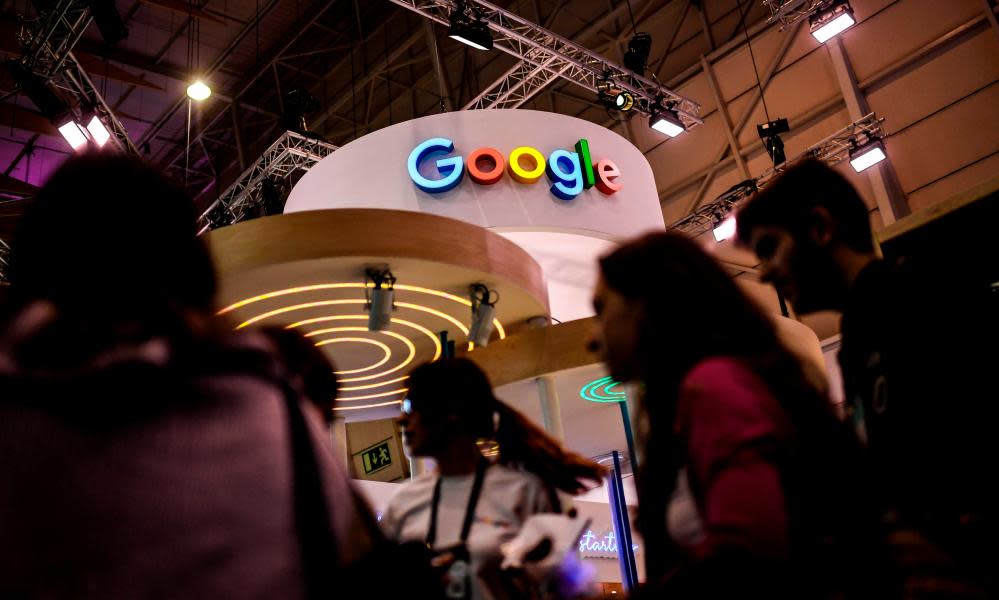Google to offer personal banking accounts in partnership with Citigroup

Google is preparing to launch a personal checking account service, a move that comes as its big tech rivals are increasingly focused on consumer finance.
The project, in partnership with Citigroup and code-named Cache, is expected to launch next year.
Related: Google's secret cache of medical data includes names and full details of millions – whistleblower
The existence of project, which was first reported by the Wall Street Journal, comes as some of the world’s biggest tech companies are challenging the primacy of the banking industry.
Over the past year, Facebook has announced it is working on a digital currency, Apple has introduced a credit card and Amazon has been in talks with banks to introduce personal accounts for consumers.
Each, in turn, is likely to stoke fears of consumers and regulators alike that technology companies are gathering too much information on their consumers.
News of the project comes a day after a whistleblower revealed the existence of Project Nightingale – Google’s partnership with the healthcare giant Ascendant that could give Google access to personal medical data of up to 50 million Americans.
On Tuesday, the German chancellor, Angela Merkel, urged Europe to seize control of its data from Silicon Valley tech giants and establish “digital sovereignty” instead of relying on Amazon, Microsoft and Google.
“So many companies have just outsourced all their data to US companies,” Merkel said.
“I’m not saying that’s bad in and of itself – I just mean that the value-added products that come out of that, with the help of artificial intelligence, will create dependencies that I’m not sure are a good thing.”
While Google has enormous reach – 1.4 billion people regularly use Gmail – so far each of the tech giants’ financial offerings have run into problems.
Several partners have pulled out of Facebook’s Libra cryptocurrency after regulators signaled opposition, while Apple’s credit card partner, Goldman Sachs, has been sued for allegedly offering discriminatory credit limits.
According to the Journal, Google is not planning to self-brand its checking or personal account service.
“Our approach is going to be to partner deeply with banks and the financial system,” Google executive Caesar Sengupta said. “It may be the slightly longer path, but it’s more sustainable.”
Sengupta said Google would not sell checking account users’ financial data in the same way that Google does not share data from its fast-growing service Google Pay with advertisers.
“If we can help more people do more stuff in a digital way online, it’s good for the internet and good for us,” Sengupta told the newspaper.
But how far Google will have to go to reassure a wary public that it can be trusted with what is arguably their most intimate information – money and health – is open to question.
The consulting firm McKinsey & Company found only 58% of people surveyed said they would trust the company with financial products.
A 2017 study by Bain & Company found that 45% of those surveyed in the UK said that existing banks offered all the services they need online.
Related: Trump impeachment inquiry: witness 'alarmed' at move to oust US ambassador to Ukraine – live
David Donovan, a technology-banking specialist at Publicis Sapient, said technology companies are partnering with banks to deal with the regulatory issues.
“They could prove to be a Trojan horse over time,” Donovan said. “But the banks are also thinking this is an easy way to get customer acquisition so it could be a win-win for both sides.”
Consumers increasingly expect the same type of experience from banks as they get from Apple or Google and big tech is undoubtably going to be in financial services in some way, independently or by partnership, Donovan believes.
“There’s an emerging demographic accustomed to a certain experience underpinned by emergent technology and banks are saddled with a lot of legacy technology. So they’re going to have to upgrade to be more digitally native and responsive, or they’re going to be disintermediated, or left out, by technology companies,” he said.

